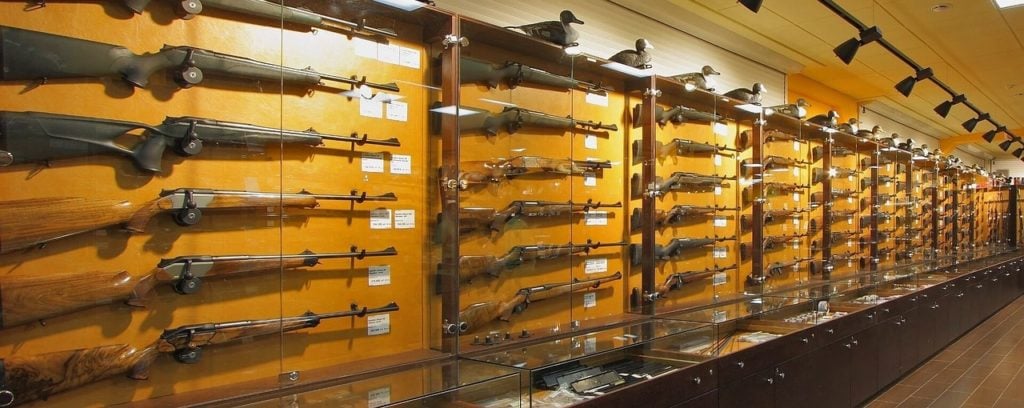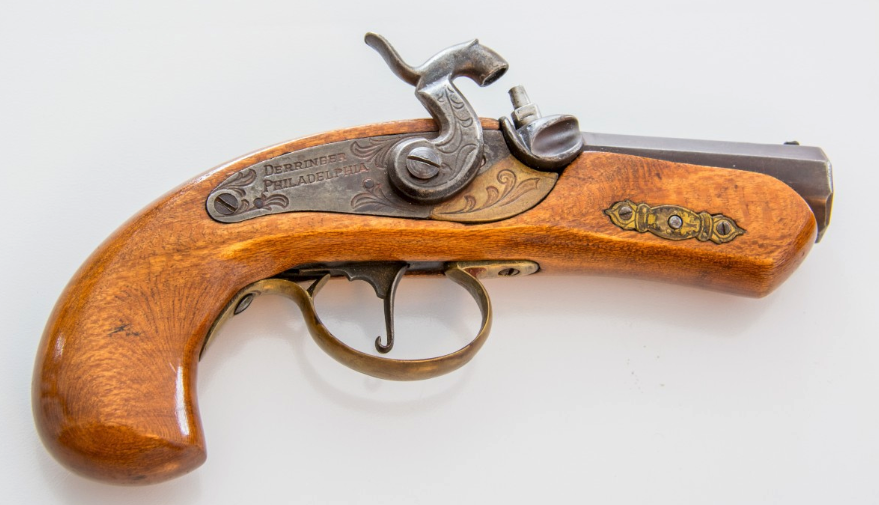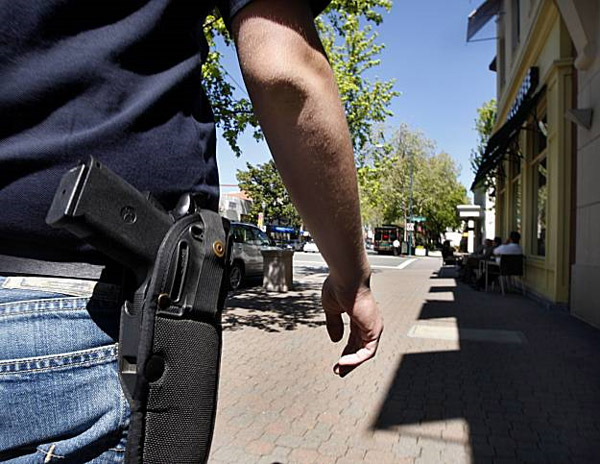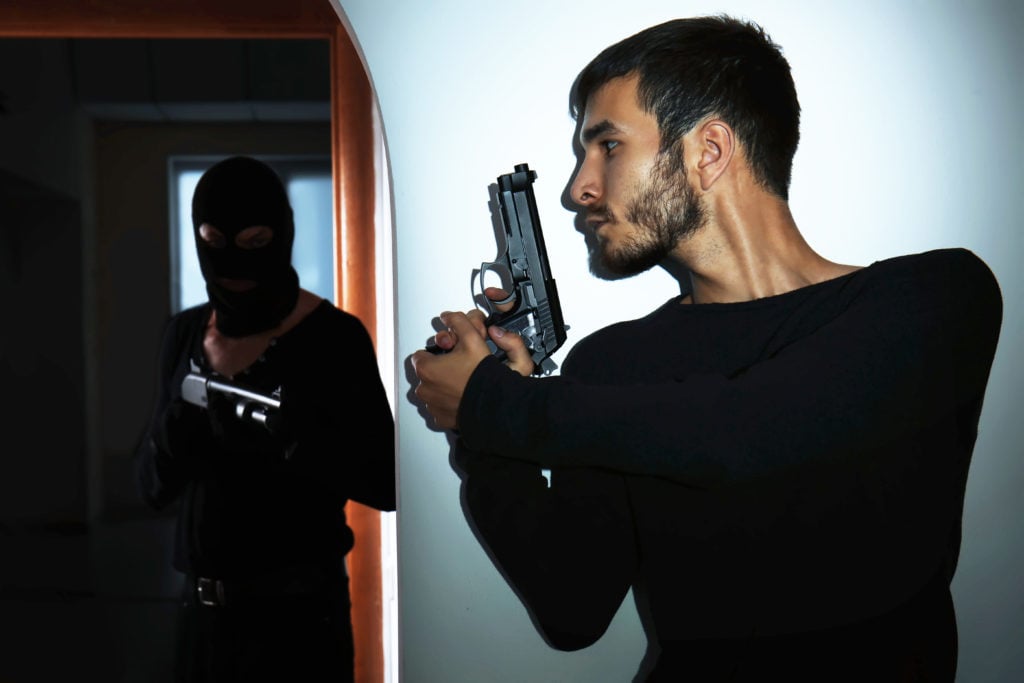

Last Updated: September 10, 2017 Disclaimer: While the information provided here is legal in nature, it is not to be construed as legal advice, and is for educational and entertainment purposes only. Keeping up with the latest gun laws of your state has become more important than ever in making sure you are on the right side of the law when it comes to owning and using your firearms. While Pennsylvania is not overly restrictive when it comes to gun ownership in general, it has a couple of hoops to jump through when it comes to handguns. We’ll go over everything you need to know on how to buy a gun, and where and when you can use it!
Qualifying to buy a handgun isn’t so bad, but the actual purchasing process is where it goes downhill. All handgun sales or transfers have to take place at the place of business of a licensed firearms dealer or at a county sheriff’s office. This means that even if your friend is just selling his Glock to you, you will both need to go to your local gun store, or the sheriff’s office in order to make the transfer. The reason for the hassle is that all transfers of firearms require a background check of the buyer, and the buy has to sign a transfer application or record of sale when the transfer or sale takes place.

You can get around the hassle of going to a licensed firearms dealer or sheriff’s office for the transfer if you are just transferring handguns to your spouse, or any transfer between parents and their children, or grandparents and their grandchildren. That means you can transfer that 1911 grandpa had since WWII without getting the government involved!

Good news! Antique firearms are exempt from the transfer requirements just like long guns are! Even if you have an antique handgun, you do not have to worry about the extra steps that would be required for a modern handgun. An antique firearm is any firearm manufactured before 1899, including a matchlock, flintlock, or percussion cap type ignition system. Any replicas of antique firearms are also exempt, as long as they are not designed or redesigned for using rimfire or conventional centerfire fixed ammunition, or use rimfire or conventional centerfire fixed ammunition that is not readily available in the US. You’ll want to make sure that antique firearm or replica you’re buying actually meets the requirements if you want to avoid the hassle of the recording requirements!
Pennsylvania does not have any specific laws on open carry, so technically, it is perfectly legal to do so! Well, except in Philadelphia. If you want to carry a handgun in a vehicle or carry concealed, you’ll need to have a license to carry or a Sportsman’s Firearm Permit. The Sportsman’s Firearm Permit is only good for hunting, fishing, trapping, and dog training though, so you will be better off getting the license to carry instead.
If you absolutely can’t wait to get a license to carry, you can always apply for a Sportsman’s Firearm Permit. Keep in mind though, the license is only good for hunting, trapping, fishing, or dog training. All you need to do to get the permit is be 18 or older, and apply with the county treasurer’s office. Make sure everything is filled out correctly, and you’ll have a permit good for 5 years! It is very important to keep in mind the permit does not allow you to carry concealed. All the permit does it allow you to carry a handgun when you are actually hunting, trapping, fishing, or training dogs. You cannot carry a loaded handgun in a vehicle even if you have a Sportsman’s Firearm Permit. If you actually want to be able to carry concealed, you’ll need to get a CCW permit. For those of you interested in going the concealed route, head on over to our Pennsylvania CCW section after you’re done here to find out all the steps to getting the permit and the laws you’ll need to watch out for once you’ve got one.

Even with open carry allowed in most of the state, there are still some places where firearms are not allowed. Firearms are not permitted in:
When travelling with your firearms, unless you are licensed to carry, you’ll have a few things to keep in mind. When transporting handguns, they must be unloaded, and carried in a secure container, with ammunition stored in a separate container. Long guns can be transported in any way you want, as long as they are unloaded. Maybe don’t leave it on the passenger seat ready to slide off when you have to hit the brakes, but a rifle mount would probably be fine.
Hopefully the only time we ever have to use our guns is at the range and competitions. If you ever do need to defend yourself, however, Pennsylvania does allow you to use deadly force if necessary.
Under what is commonly known as the “Castle Doctrine”, if you reasonably believe deadly force is necessary to defend yourself against death, serious bodily injury, kidnapping, or rape against someone who is entering or has entered your house or occupied vehicle, you are justified in using that deadly force. It is important to keep in mind that the person must be entering to trying to enter your house or occupied vehicle. You cannot use deadly force to defend your empty car sitting in the driveway. You can definitely defend yourself against someone breaking into your bedroom while you’re sleeping, however.

Being able to defend yourself at home is great, but you’ll also want to be able to defend yourself while you’re out on the town. Fortunately, the state of Pennsylvania agrees, and has on the books a version of what is referred to as the “Stand Your Ground” rule. As long as you are somewhere you are legally allowed to be, you do not have a duty to retreat before using deadly force, if you believe it is necessary to use deadly force to protect yourself against death, serious bodily injury, kidnapping, or rape, against someone who has a deadly weapon. But keep in mind, just because you do not have a duty to retreat does not mean you must use deadly force in every situation, even if you are justified in doing so. Sometimes, it may be safer for you and others involved to safely retreat than to engage the threat.
Though it’s not a law, it is always a good idea to lock away your shiny pistols and rifles when they’re not on your hip or slung over your shoulder. A sturdy gun safe or gun cabinet can do the job of protecting your guns from burglars and curious kids, or even just a quality handgun safe for those of you just starting your handgun collection. Safety first!